
If your child’s maturity level doesn’t happen to coincide with the (artificial) grade level that matches his age, what strategies can you use?
First, do your best to separate out the different “subjects” that make up the child’s curriculum and think of each of them separately.
On the most basic level, most students find either language based (reading- and writing-based subjects) or symbolic (math and related subjects) learning to be more natural, and will progress more rapidly in their preferred subject type.
Don’t use either the “slower” or “faster” subject as a way to locate the child within an entire grade.
I’ve often spoken to parents who are frustrated (for example) because their fourth-grade aged child is reading at a much higher level, but is struggling with second- or third-grade math skills. The tendency is to focus on the child’s slower areas, to spend more time on those in order to move the child into a higher grade. But the result can be that the child ends up evaluating himself by his weaknesses, not his strengths. The most damaging thing about our grading system is the way in which it can obscure natural gifts, requiring children to spend untold hours laboring away at subjects they dislike at the expense of learning in which they excel.
A century ago, Montessori educator Dorothy Canfield Fisher wrote a popular children’s novel called Understood Betsy in which nine-year-old Elizabeth Ann leaves the big city and her urban school, where age grading has been thoroughly instituted: “In the big brick schoolhouse,” Canfield writes, “nobody ever went into another grade except at the beginning of a new year, after you’d passed a lot of examinations. She had not known that anybody could do anything else.” Instead, she goes to live with country cousins and attends their tiny rural school, still one room and multi-age, led by one teacher who praises her reading skills, but realizes that she needs work in math:
After the lesson the teacher said, smiling, “Well, Betsy, you were right about arithmetic. I guess you’d better recite with Eliza for a while. She’s doing second-grade work. I shouldn’t be surprised if, after a good review with her, you’d be able to go on with the third-grade work.” Elizabeth Ann fell back on the bench with her mouth open. She felt really dizzy. What crazy things the teacher said! She felt as though she was being pulled limb from limb. “What’s the matter?” asked the teacher, seeing her bewildered face. “Why—why,” said Elizabeth Ann, “I don’t know what I am at all. If I’m second-grade arithmetic and seventh-grade reading and third-grade spelling, what grade AM I?” The teacher laughed at the turn of her phrase. “YOU aren’t any grade at all, no matter where you are in school. You’re just yourself, aren’t you? What difference does it make what grade you’re in! And what’s the use of your reading little baby things too easy for you just because you don’t know your multiplication table?” “Well, for goodness’ sakes!” ejaculated Elizabeth Ann, feeling very much as though somebody had stood her suddenly on her head. “Why, what’s the matter?” asked the teacher again. This time Elizabeth Ann didn’t answer, because she herself didn’t know what the matter was. But I do, and I’ll tell you. The matter was that never before had she known what she was doing in school. She had always thought she was there to pass from one grade to another, and she was ever so startled to get a glimpse of the fact that she was there to learn how to read and write and cipher and generally use her mind….[I]t made her feel the way you do when you’re learning to skate and somebody pulls away the chair you’ve been leaning on and says, “Now, go it alone!”
Grasping this thoroughly yourself, and then articulating this reality to the child—giving her a sense of normalcy over the variety in her abilities—can begin to defuse frustration.
Second, take a good hard look at the child’s physical development.
Age-grading is based on a mean—and if you’re not a math person, “mean” is simply one way to express “average.” In math, you find the mean by adding a list of numbers together and dividing them by the number of numbers. Here’s what’s important about that: Often, the mean is a number that didn’t even appear on the original list.
13, 17, 28, 52, 71
Added together: 181
Divided by 5: 36.2 (the mean)
The “average” fourth grader is 4’3 3/4” tall and weighs 70.5 pounds. But in any given fourth grade class, there may be no students who are actually this height and weight–plus ten-year-olds who weigh anything from 40 to 90 pounds and range between four and five feet in height.
Physical development affects learning. Children who are on either end of this completely normal range often struggle with “grade level” work. Very small children need time to catch up; children who are on the larger side often need the same amount of time to figure out how to manage their bodies,; they can be like large uncoordinated puppies, growing towards an imposing presence but with no idea how to manage their limbs. When you’re trying not to trip, struggling to keep your pants up and zipped, and having a hard time fitting into your desk, your attention isn’t going to be on your essay assignment.
If your child is on the low or high side of the “average” for his or her “age grade,” consider that you may have a serious maturity mismatch.
Third, if you’re dealing with younger students, be very careful about accelerating them.
It’s very tempting to jump a bored kid ahead by one or two grade levels as a quick fix, but consider this: The biggest maturity leaps happen between 6-10, and again between 13-16. If you leap your second grader ahead into third grade because she’s more mature than the other second-graders, there’s a very real possibility she’ll find herself, at thirteen, in a group of more-mature students and struggling.
It’s the nature of our school system that it is much easier (and less emotionally fraught for the kid) to move ahead than to drop back. Dropping back is traumatic, even when it’s necessary. So think very hard about the wisdom of starting a child early or accelerating them before they reach puberty.
And think about the results of accelerating, on the other end: a student who reaches high school early will not be old enough to drive (when all of his friends are) or take part in other age-graded activities.
You may also end up with a sixteen- or seventeen-year-old college freshman. Some students are mature enough to benefit from college at those ages, but fifteen years of university teaching has convinced me that most are not. You need to be not just intellectually, but emotionally mature to benefit from college—and emotional maturity can’t be rushed; it happens when the earth has gone around the sun the appropriate number of times.
Recommended Products
-

Juneteenth Booklist & Activities
0 out of 5$0.00 Add to cart -
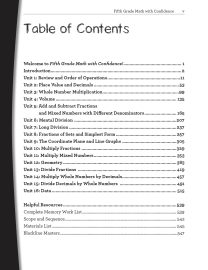
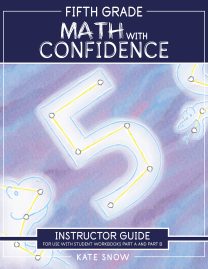
Fifth Grade Math with Confidence Instructor Guide
0 out of 5Starting at:$36.95Original price was: $36.95.$27.71Current price is: $27.71. Select options -
Sale!

Hansel & Gretel and Other Stories: Downloadable MP3
0 out of 5$12.95Original price was: $12.95.$9.71Current price is: $9.71. Add to cart -
Sale!

Dorothy and the Wizard in Oz: Downloadable MP3
0 out of 5$25.95Original price was: $25.95.$19.46Current price is: $19.46. Add to cart -
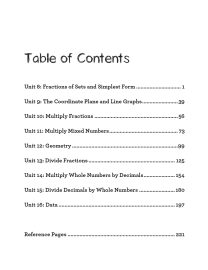 Sale!
Sale!
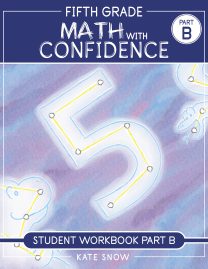
Fifth Grade Math with Confidence Student Workbook B
0 out of 5$16.46 – $21.56 Select options This product has multiple variants. The options may be chosen on the product page -
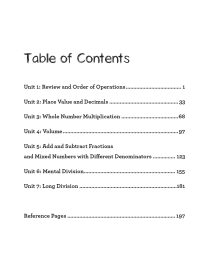 Sale!
Sale!
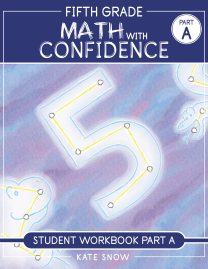
Fifth Grade Math with Confidence Student Workbook A
0 out of 5$16.46 – $21.56 Select options This product has multiple variants. The options may be chosen on the product page
ABOUT THE AUTHOR
Susan Wise Bauer
Join over 100,000 homeschooling families
For the latest offers, educational insights, products and more.
By joining you agree to our privacy policy.










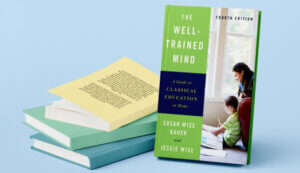



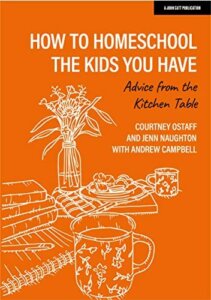




5 thoughts on “Maturity & The Real Child, Part II: Strategies for the Age-Grade Mismatch”
This was a refreshing article. I have a 3rd grader who struggles with math but excels in reading and writing. I’ve been hammering math trying to keep her “caught up” but to no avail. we both end up frustrated at the end of just about each lesson. She’s also only in the 10th percentile for height and 15th for weight for her age. I need to slow down and focus on her strength, the math will come with time.
Me too!! She absorbs books, experiments, builds, draws really well, & excels at animal related or crafting things. But math is tears, tears, tears.
I have a hard time with people and their 1. Why aren’t you in school? & 2. What grade are you in?
We learn, at our pace, and her grades are all over the board. 😉
Hang in there!
I told my kids to answer 1. I’m homeschooled. 2. I’m homeschooled. People aren’t malicious when they ask what grade they are in, but they are a bit oblivious, and I don’t want my kids to have to be educating them on homeschool.
My daughter is in 4th grade. She is 5’1, 115lbs. We homeschool since 2nd grade but she feels awkward about her height and so many other things. Her favorite subjects are music and science. Her least favorite is social studies ( we start the ‘story of the world v1 on Monday ) and math (which she excels at!) It doesn’t make any sense to me. She is fantastic at math and grasps social studies but does not like them. She loves music and science but is not the best at them! Isn’t this all reversed? What do I do? Any suggestions..
It’s reversed from what’s most common, true, but that doesn’t mean it’s a problem. It’s actually great that she is happy to work on the subjects she is not the best at! For math, you might look for supplements – many kids who are very strong in math get bored without a challenge, and lots of them enjoy books about math puzzles, projects, and challenges. You can usually find some at your library to start. For social studies, try adding in more biographies to her reading list. These suggestions might pique her interest in her strong subjects, but overall, liking her weaker subjects best is not going to be an issue.